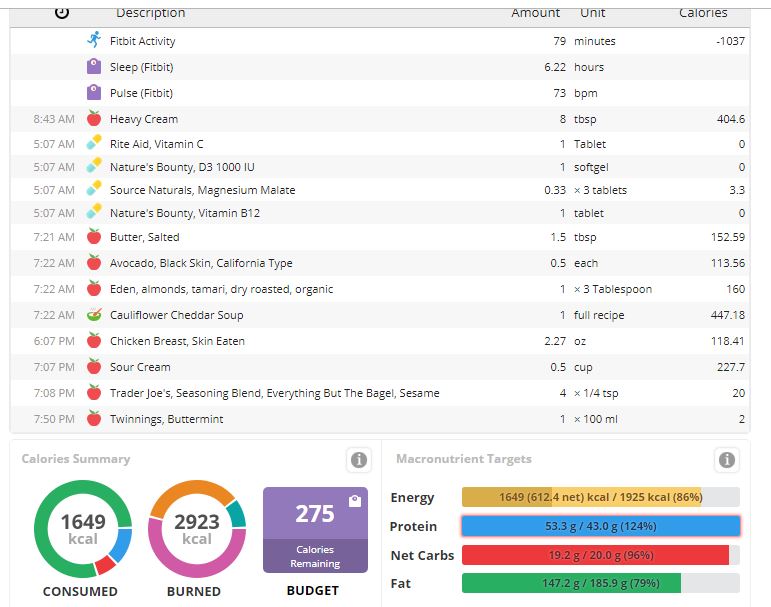Hey everyone, I’m brand new (first post!!) 
Some background: I’ve been keto since 1/3/19, and have lost 7.5 lbs. I’m happy the scale is going down, it seems really slow but after reading a lot of posts from some of you keto veterans, my discouragement is fading. I’m female and 49, started at 213 and now 205. Goal is ~140 or when I feel good in my body and clothes. I use cronometer to track everything, and have been under 20g of carbs since day one, and mostly stay at or under the protein macro, occasionally going 10g over. I stay below my calorie allotment on almost all days. I have a sedentary job but walk briskly at the gym for an hour 3-4 days a week. I have a pretty low-stress life, and am happy on 6-7 hours of sleep (ie. I CANNOT sleep more).
I have not eaten wheat in 1.5 years, and in the past 5 years have lived a lot of that time without grains or refined sugar, though I ate carbs. I’m wondering if my progress could be slower than some because of that (maybe less carb addicted, so less water to lose?), or if it’s just that I’m almost 50 and peri-menopausal. I’m understanding that the fat comes off at different rates for different people for many reasons, just trying to keep a positive mindset about it, I’m so tired of being fat.
I’m KCKO despite a little discouragement.
Thanks, everyone.





 I’m really starting to see and accept just how different it really is for each person. My initial question comes from noting the weight loss reports from keto people in my vicinity, who are all coming from a place of massive sugar and carb addiction, so I wondered if there was a connection.
I’m really starting to see and accept just how different it really is for each person. My initial question comes from noting the weight loss reports from keto people in my vicinity, who are all coming from a place of massive sugar and carb addiction, so I wondered if there was a connection.